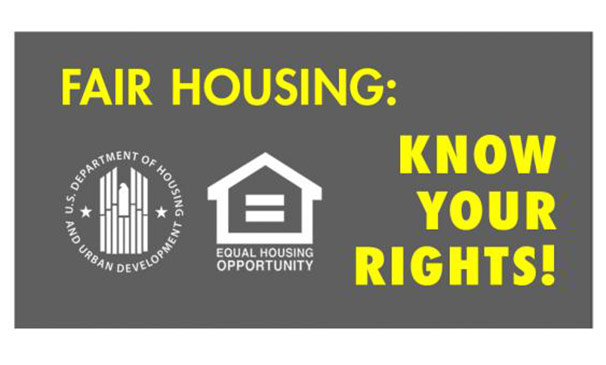The U.S. Department of Housing and Urban Development (HUD) is charging an owner of a six-bedroom rental home in Frisco, Texas, with violating the Fair Housing Act by refusing to rent to a woman and her ten children. HUD’s charge alleges that the owner stated that he could not rent the home to a family with eleven people, even though the mother, a HUD Housing Choice Voucher recipient, was qualified to rent the home. Read HUD’s charge.
The Fair Housing Act makes it unlawful to refuse to rent to a family because of children under the age of 18 and to make statements that discriminate against families with children. This includes making statements or publishing advertisements that indicate a preference or otherwise discriminate against families with children. Housing may exclude children only if it meets the Fair Housing Act's exemption for housing for older persons.
“Large families have a hard enough time finding suitable housing that meets their needs without also having to face unlawful discrimination,” said Jeanine Worden, HUD’s Acting Assistant Secretary for Fair Housing and Equal Opportunity. “HUD will continue working to ensure that housing providers comply with the nation’s housing laws.”
“Families come in all sizes, and all are worthy of protection under the law,” said Damon Smith, HUD’s Principal Deputy General Counsel. “HUD is committed to advocating on behalf of families with children to allow them to secure housing free from discrimination.”
The case came to HUD's attention when the woman filed a complaint with the Texas Workforce Commission, a HUD Fair Housing Assistance Program agency, alleging that she was denied the opportunity to rent the home because of the number of children she has. HUD’s charge alleges that the owner initially contacted the mother through GoSection8.com, telling her about his “beautiful 5,095 square-foot home for rent in Frisco.” The charge further alleges that when the woman told the owner that she has ten children, he told her that was too many children and refused to rent to the family. The family ultimately moved to a smaller rental home with fewer bedrooms in a different city.
HUD's charge will be heard by a United States Administrative Law Judge unless any party elects for the case to be heard in federal court. If the administrative law judge finds after a hearing that discrimination has occurred, the judge may award damages to the complainant for losses that have resulted from the discrimination. The judge may also order injunctive relief and other equitable relief, as well as payment of attorney fees. In addition, the judge may impose civil penalties in order to vindicate the public interest.
People who believe they have experienced discrimination may file a complaint by contacting HUD's Office of Fair Housing and Equal Opportunity at (800) 669-9777 (voice) or (800) 877-8339 (Relay). Housing discrimination complaints may also be filed by going to hud.gov/fairhousing, or by downloading HUD's free housing discrimination mobile application, which can be accessed through Apple and Android devices.
 Benefits.com Advisors
Benefits.com Advisors
With expertise spanning local, state, and federal benefit programs, our team is dedicated to guiding individuals towards the perfect program tailored to their unique circumstances.
Rise to the top with Peak Benefits!
Join our Peak Benefits Newsletter for the latest news, resources, and offers on all things government benefits.




















